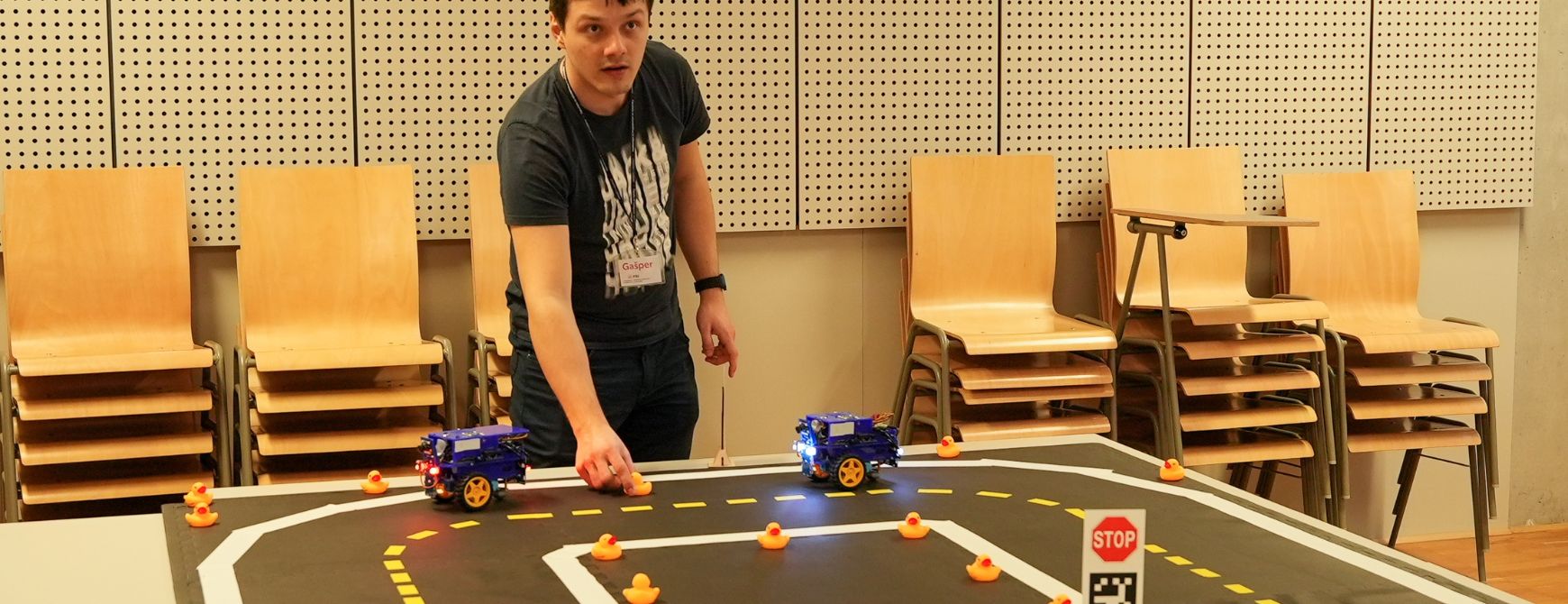Duckiebots – autonomous driving robot cars in a small-scale city Model

UL FRI
Date of publication:
Autonomous driving robots, equiped with camera and sensors have become reality. Meet Duckiebots, which are the result of the reasearch of doc. dr. Octavian Machidon from the Faculty of Computer and Information Science (FRI).
He has recently implemented a demonstration project centered on autonomous driving robots, integrating a spectrum of cutting-edge technologies, including computer vision, sensors, artificial intelligence, machine learning, and robotics. Within this project, dr. Machidon introduced the Duckietown, an innovative robotics and AI ecosystem tailored for both educational and research purposes, at FRI.
At its core are scale-model self-driving cars dubbed Duckiebots. These vehicles, equipped with an NVIDIA Jetson Nano mini-computer, cameras, and sensors, navigate autonomously within the miniature metropolis of Duckietown, which features roads, obstacles, traffic signals, and intersections. The Duckietown platform serves as a resource hub for researchers and students alike.
Dr. Machidon intends to use the platform as a basis for further development of context-dependent and effective deep learning on mobile devices. The project builds on his previous research, where he studied the use of drones in smart agriculture as part of the European AgriAdapt project.
The Duckcity offers students a hands-on environment to learn about robot autonomy: how to make robots make their own decisions, and experiment with different self-driving car technologies such as lane detection and tracking, vehicle recognition, obstacle avoidance, traffic sign recognition and route planning. Through this innovative initiative, researchers and students can actively participate in practical implementations and empirical research in the field of autonomous transport.


